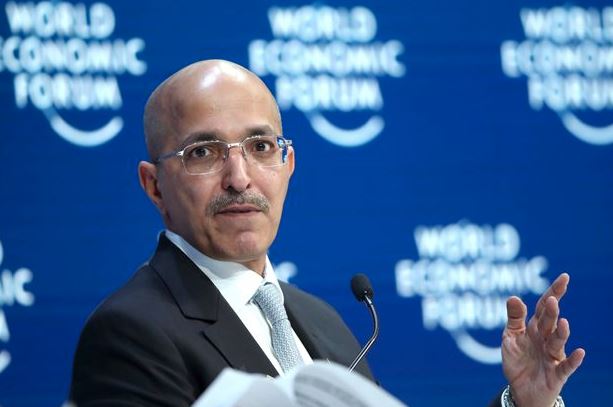Davos: Saudi Finance Minster Mohammed al-Jadaan has said that the Kingdom of Saudi Arabia is changing the ways it assists allies and is now shifting from “giving direct grants and deposits unconditionally”.
Speaking at the annual meeting of the World Economic Forum (WEF) in Davos on Thursday, the minister said that the Kingdom was encouraging countries in the region to enact economic reforms.
“We used to give direct grants and deposits without strings attached and we are changing that. We are working with multilateral institutions to actually say we need to see reforms,” the minister said.
On January 10, the Saudi Press Agency reported that Saudi Crown Prince Mohammed bin Salman had directed authorities to study “augmenting” the Kingdom of Saudi Arabia’s investments in Pakistan to reach $10 billion.
According to the report, the crown prince had also directed the Saudi Development Fund (SDF) to study increasing the amount of the deposit in Pakistan’s central bank to hit $5 billion to boost its foreign-currency reserves.
On December 2 last year, the SFD extended its term for the $3 billion deposit in the State Bank of Pakistan, which was set to mature on December 5.
The SBP had signed an agreement with the SFD in November 2022 to receive $3 billion, to be deposited in the central bank’s account to improve its foreign exchange reserves.
The finance minister said that Saudi Arabia was taxing its people, and “we are expecting also others to do the same, to do their efforts. We want to help but we want you also to do your part”.
Saudi Arabia and other Gulf Arab states like the United Arab Emirates and Qatar have increasingly moved towards investing rather than extending direct financial aid.
In June last year, Saudi Arabia signed deals worth $7.7 billion with Egypt, including to build a $1.5 billion power plant, and said it intended to lead investments worth $30 billion, helping a long-standing ally that faces a weakening currency and shortage of foreign currency.
The world’s top oil exporter and an Arab powerhouse also set up companies in Egypt, Jordan, Bahrain, Sudan, Iraq, and Oman to seek up to $24 billion in investments there.
With additional inputs from Reuters.










